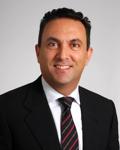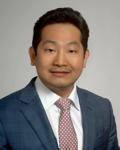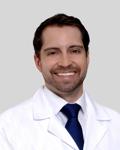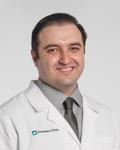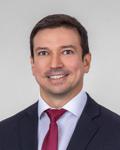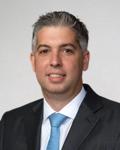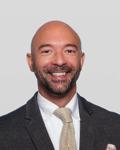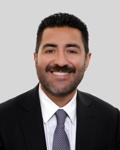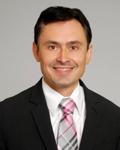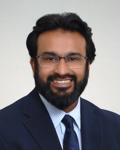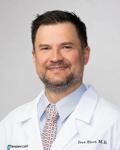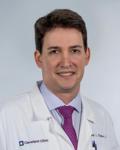Overview
Thank you for your interest in Cleveland Clinic Neurological Surgery Residency and Graduate Medical Education Program. Our program is fully accredited by the American Board of Neurological Surgery, meets or exceeds all ACGME requirements and is designed to train future leaders in neurosurgery.
Neurological surgery has a long and esteemed tradition at Cleveland Clinic. Nearly 75 years ago, W. James Gardner, MD, our first chairman in Neurological Surgery, established the department’s direction with his keen interest in teaching, research, and quality patient care. Today, Cleveland Clinic neurosurgeons remain dedicated to those same principles.
Cleveland Clinic is excited to offer a Neurological Surgery Residency and Graduate Medical Education Program based primarily in Weston, Florida.
Cleveland Clinic has always been committed to excellence in patient care and researching the diseases that affect our patients. We take special pride in training future neurosurgical practitioners who practice putting patients first to deliver the highest quality of medical care.
Application Process
Cleveland Clinic's Neurological Surgery Residency Program is designed to train future leaders in neurosurgery. The program meets or exceeds all requirements of the American Board of Neurological Surgery and is fully accredited by the ACGME.
Application process
One position is available per year. The Neurosurgery Resident Program participates in the Electronic Residency Application Service (ERAS) and the National Resident Matching Program (NRMP). Complete applications are reviewed only. Applications must have three letters of recommendation which includes neurological surgery experience, USMLE score of at least 240 and research in neurosurgery.
- Badih Adada, MD, FAANS
Chair of Neurosurgery - Hoon Choi, MD, PhD, FAANS
Residency Program Director - Yamila DeLeon
Program Manager, GME
deleony@ccf.org
Resident Rotations
First year of residency (PGY-1)
The PGY-1 neurosurgical resident will spend the majority of their year at Cleveland Clinic in Weston.
During PGY-1, five months will be spent in basic neuroscience (including Neurology, Neuroradiology, Neuropathology, and Neuro-ophthalmology), including a 4-week rotation at Cleveland Clinic’s Main Campus in Neuropathology/Neuro-ophthalmology.
The PGY-1 neurosurgical resident spends 12 weeks in the Neurointensive Care Unit engaged in the care of neuro-critically ill patients, both medical and surgical. Residents will admit and assist in the care of all the neuro-critical care patients in conjunction with the Neurology, MICU and SICU residents, fellows and attending staff. The resident will perform neurosurgical procedures such as: external ventricular drain, ICP monitor, lumbar puncture, lumbar drain, shunt tap, and shunt reprogramming.
The PGY-1 neurosurgical resident will rotate through neurosurgically relevant subspecialties, including Otolaryngology, Plastic Surgery, Radiation Oncology, and Anesthesia. During the Otolaryngology rotation residents will learn to care for a wide spectrum of neurosurgical pathology requiring otolaryngology including: tumor (skull base/head/neck), trauma, anterior cervical spine pathologies, and other head/neck/spine pathologies requiring collaboration with otolaryngology. The Plastic Surgery rotation will focus on learning to care for a wide spectrum of neurosurgical pathology requiring plastic surgery including: tumor (brain and spine), trauma, spinal deformity with multiple failed surgeries, and other head/neck/spine pathologies requiring rotational or free flaps. The Radiation Oncology rotation is focused on developing PGY-1 residents to care for a wide spectrum of neurosurgical pathology including: tumor (brain and spine), vascular (brain), pain, and other head/neck/spine pathologies. The PGY-1 neurosurgical resident also spends 4 weeks with Neuroanesthesia. The goal of the rotation is to familiarize neurosurgery residents with the initial evaluations and principles of anesthetic management in patients with neurological diseases.
Residents must pass USMLE Step 3 by the end of PGY-1.
Second year of residency (PGY-2)
The Inpatient Neurosurgery rotation is focused on developing PGY-2 residents in the management of inpatient neurosurgical patients. PGY-2 residents will complete a 12-month rotation at Cleveland Clinic in Weston where they will learn to care for a wide spectrum of neurosurgical pathology including: tumor (brain and spine), vascular (brain and spine), epilepsy, movement disorders, pain, hydrocephalus, trauma (brain and spine), spine (degenerative/deformity/infection/tumor), and peripheral nerves (degenerative/trauma/tumor).
Residents will be involved in direct patient care in the following locations: Emergency Room, Intensive Care Units (Neurosurgical/Surgical/Medical), Intermediate Care Unit, Medical/Surgical Floor, Post Anesthesia Care Unit, Angiography Suite, Interventional Radiology Suite, and Operating Rooms.
The rotation is highly collaborative and interdisciplinary as residents will work closely with: Neurology, Internal Medicine, Emergency Medicine, Radiology, Anesthesiology, General Surgery, Vascular Surgery, Otolaryngology, Orthopedics, Plastic Surgery, Radiation Oncology, Hematology/Oncology, Pathology, Endocrinology, and Critical Care. The primary responsibility is to care for the inpatients on the neurosurgery service and to manage all neurosurgical consults.
Third year and fourth year of residency (PGY-3, PGY-4)
The third and fourth years of residency are focused on surgical education. Four days every week are dedicated to actively learning surgery in the operating room.
The Cranial rotation is focused on developing the cranial surgical skills of the PGY-3 and PGY-4 residents. PGY-3 and PGY-4 residents will complete a 6-month rotation each year at Cleveland Clinic Weston Hospital where they will learn to care for a wide spectrum of neurosurgical pathology including: tumor, vascular, epilepsy, movement disorders, pain, hydrocephalus, and trauma. Residents will be involved in direct patient care in the following locations: Operating Room, Emergency Room, Intensive Care Units (Neurosurgical/Surgical/Medical), Intermediate Care Unit, Medical/Surgical Floor, and Post Anesthesia Care Unit.
The Spine rotation is focused on developing the spinal surgical skills of the PGY-3 and PGY-4 residents. PGY-3 and PGY-4 residents will complete a 6-month rotation each year at Cleveland Clinic Weston Hospital where they will learn to care for a wide spectrum of neurosurgical pathology including: degenerative, deformity, trauma, tumor, infection, vascular, pain, and peripheral nerves. Residents will be involved in direct patient care in the following locations: Operating Room, Emergency Room, Intensive Care Units (Neurosurgical/Surgical/Medical), Intermediate Care Unit, Medical/Surgical Floor, and Post Anesthesia Care Unit.
Fifth year of residency (PGY-5)
PGY-5 residents will spend four months in trauma rotation at Broward Health Medical Center (County Level 1 Trauma Center), four months in pediatric rotation at Nicklaus Children’s Hospital (formerly known as Miami Children’s Hospital), and four months in endovascular rotation at Cleveland Clinic Weston Hospital.
The neurotrauma rotation at Broward Health Medical Center is focused on developing PGY-5 residents in the management of patients with neurotrauma and general neurosurgery conditions in the setting of a neurosurgery department in the major safety net hospital/Level 1 Trauma Center. PGY-5 residents will learn to care for a wide spectrum of neurosurgical pathology including traumatic brain injury, traumatic spine/spinal cord injury, degenerative spine conditions, neuro-oncology, cerebrovascular disorders, and general neurosurgical conditions during their rotation. Residents will learn the fundamentals of initial evaluation and treatment of neurosurgical emergencies including trauma bay resuscitation, bedside procedures, critical care management, and the surgical management in the operating room. Residents will gain experience in the advanced management of traumatic brain and spine injuries, particularly in the polytrauma patient.
The pediatric neurosurgery rotation at Nicklaus Children’s Hospital will develop PGY-5 residents in the diagnosis, management of pediatric patients with all types of disorders affecting the nervous system and skull as traumatic injury, brain tumors, vascular disorders, congenital anomalies and facial and skull deformities. Residents will learn emergent and elective neurosurgical care of pediatric patients in both inpatient and outpatient settings.
The endovascular rotation at Cleveland Clinic Weston Hospital is focused on developing the endovascular surgical skills of the PGY-5 residents to manage neurosurgical patients with cerebrovascular disorders. PGY-5 residents will learn to care for a wide spectrum of intracranial and extracranial vascular pathology including: aneurysms, arteriovenous malformations, dural arteriovenous fistulae, cavernomas, ischemic and hemorrhagic stroke, carotid and vertebral artery pathologies, vascular tumors requiring embolization, pathologies requiring direct/indirect bypasses, and any other head/neck/spine pathologies requiring vascular intervention. Residents will learn from the neurosurgeons, neuroendovascular surgeons, and dual-trained vascular surgeons.
Residents must pass the ABNS Primary Examination for credit by the end of PGY-5.
Sixth year of residency (PGY-6)
The sixth year is the Chief Year for the residency and is the culmination of neurosurgery residency when PGY-6 residents manage the inpatient neurosurgery service, perform routine and complex neurosurgical procedures, and run the resident clinic (one day a week) independently (with Attending oversight). The goal of the Chief Year is to build upon the preceding five years of residency to demonstrate the knowledge, skills, and behaviors necessary to enter autonomous practice. Before entering the Chief Year, the resident should have passed the ABNS Primary Examination for credit.
The Chief Resident will assist the Junior and Senior Residents with board preparation. The Chief Resident will also be in charge of the Weekly Neurosurgery Conference, M&M, and the resident/APP call schedule. The Chief Resident will take on the role of an Associate Surgeon at Cleveland Clinic Weston Hospital and function as a junior attending neurosurgeon (with PD Supervision) in the setting of a major academic hospital in South Florida. The Chief Resident will take home ‘chief call’ every other week and manage the inpatient neurosurgery service.
Seventh year of residency (PGY-7)
PGY-7 is an elective year for the neurosurgery residents who have already met and exceeded all Minimum Case Requirements, passed the Boards, and have met all the other requirements for completion of residency. Residents may choose to stay at the primary clinical site (Weston, FL) and become an enfolded fellow in Skull Base Surgery or Advanced Spine Surgery; head to one of the Cleveland Clinic locations in Ohio, Abu Dhabi, or London for a Fellowship; visit another institution in the US (requires prior approval); go overseas for an international elective (international surgical cases are not recognized in ACGME Case Log) ; perform research full-time; or pursue an advanced degree such as MPH and MBA.
Medical Student Rotations
Electives
Elective rotations function as an Acting Intern. Medical Students in their “final year” of Medical School who are seeking to complete a 4-week rotation in Neurosurgery are encouraged to apply.
Responsibilities include rounding with the service team, writing notes, presentations and taking call routinely. Information and expectations of this rotation will be provided to you when the rotation is confirmed.
All Medical Students completing a rotation at the Cleveland Clinic who are seeking academic credit must be processed and on-boarded through the Elective Program Office.
Rotations not fitting the above date blocks will be considered on a case-by-case basis, as availability permits. Typically, 3-4 students are permitted per block.
To learn more about applying for a Neurosurgery rotation, please visit our Undergraduate Medical Education page.
Sub-internship application process
Requirements: You must be a medical student in good standing who has completed your core clinical rotations and intends to apply to neurosurgical residency.
Required materials: Medical school transcript (may be unofficial), CV, and personal statement.
Interested applicants must first send required materials to our program manager, Yamila DeLeon, at deleony@ccf.org. Please also include which block you are interested in rotating in. We review applications on a rolling basis for approval. If approved, applicants will need to then submit a formal application for approval through the Cleveland Clinic’s elective rotation application system.
There are several additional required materials to complete your application through the Cleveland Clinic’s elective rotation system. View additional materials requirements.
Rotating in neurosurgery at the Cleveland Clinic
During your entire rotation you will be embedded in the inpatient neurosurgery service at the main Florida campus of the Cleveland Clinic in Weston, Florida. Cleveland Clinic in Florida serves both domestic and international patients with a wide range of neurosurgical pathology often with a history of multiple previous surgical treatments.
You will be expected to help gather information, assess patients, and assist in the clinical decision-making process. We have a very busy surgical service, and rotators should expect to spend nearly every day scrubbed into cases. Outside the OR, you will also have the opportunity to gain exposure to our staff in their subspecialty clinics one day a week. We have daily neuroscience lectures at noon, weekly neurosurgery conferences, and rotators are expected to attend. During one of our weekly neurosurgery conferences, you will be expected to give a 10-15 minute talk.
Our hope is that your rotation will help you to prepare to be a successful neurosurgery intern and help you to get to know us better, as well as to allow you to experience the quality of training and patient care at the Cleveland Clinic first-hand. If you have any questions or would like further information, please reach out by e-mail.
Faculty
Cleveland Clinic Florida
|
|
|
|
|
|
|
|
|
|
|
|
|
|
|
|
Cleveland Clinic Ohio
Nicklaus Children's Hospital
- Toba Niazi, MD
- Sarah Jernigan, MD
- Kristen Stabingas, MD
Broward General
- Daniel Klinger, MD
- John Cain, MD
- Carlos Casas, MD
Program Manager
Yamila DeLeon
2950 Cleveland Clinic Blvd.
Weston, FL 33331
Phone: 954.498.6844
Email: deleony@ccf.org
Current Residents
This fully accredited ACGME program is designed to train future leaders in neurosurgery. Our faculty of 15 full-time surgeons sees both local and international patients with a wide range of neurosurgical pathology, allowing us to offer training in all neurosurgical subspecialties.
Residents are expected to participate in research projects and are encouraged to present their findings at national meetings.
Upon successful completion of the Chief Year (PGY-6), residents will have the option to undertake a CAST-accredited fellowship, pursue full-time research, or obtain an advanced degree such as MPH or MBA in their final year of residency.
PGY-1
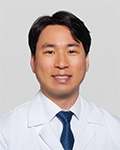
Myung-Jun “MJ” Ko, MD, PhD
Undergraduate: University of Hawai’i at Manoa
Medical School: David Geffen School of Medicine at UCLA
Graduate School: The Johns Hopkins School of Medicine (PhD, Cellular & Molecular Medicine)
PGY-2
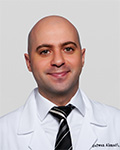
Safwan Alomari, MD
Medical School: Jordan University of Science and Technology, Jordan
Program Highlights
Cleveland Clinic has a long history of Neurosurgical training, first established in 1929 by Dr. W. James Gardner.
Cleveland Clinic is recognized in the U.S. and throughout the world for its expertise and care.
Faculty
The breadth of Neurosurgery is represented with programs that include Cerebrovascular/Neuroendovascular, Complex Spine, Skull base, Neuro-oncology, Pediatric/congenital/endoscopic, Functional-Restorative, Pain, Peripheral Nerve, and Epilepsy Surgery.
Fellow and advanced practitioner support
A group of fellows from all backgrounds and APP’s allows support and cross training for residents. The additional support from the APP’s allows residents to attend didactics, increases opportunities to participate in the OR and creates a collegial team effort in patient management.
Single institution
All residency training (except two, four-month PGY-5 rotations) is completed at a single institution, Cleveland Clinic.
Case volume
Cleveland Clinic Foundation/Florida Neurological Surgery Residency was designed to maximize surgical education. PGY-1 and PGY-2 will be focused on procedures outside the OR. PGY-3, PGY-4, PGY-5, and PGY-6 residents can expect to operate four days/week with one-day spent in clinic.
Research and education
Research is actively encouraged throughout the residency. There is an option to perform full-time research in PGY-7. Cleveland Clinic Foundation has one of the largest and most broad-based conical and research programs in the United States.
Part of resident responsibility within the neurosurgery program is to engage in teaching and mentoring of medical students. In addition, residents are given the opportunity to help create the program curriculum.
Technology
Cleveland Clinic is on the cutting edge of technology development. New and exciting innovations and technologies are continuously being implemented. Examples include state of the art intraoperative robotics, neuroendovascular labs, computer assisted surgery including navigation and neuroendoscopy.
Length of training
Seven-years
Resident complement
One resident per year is matched for Florida.
Basic structure
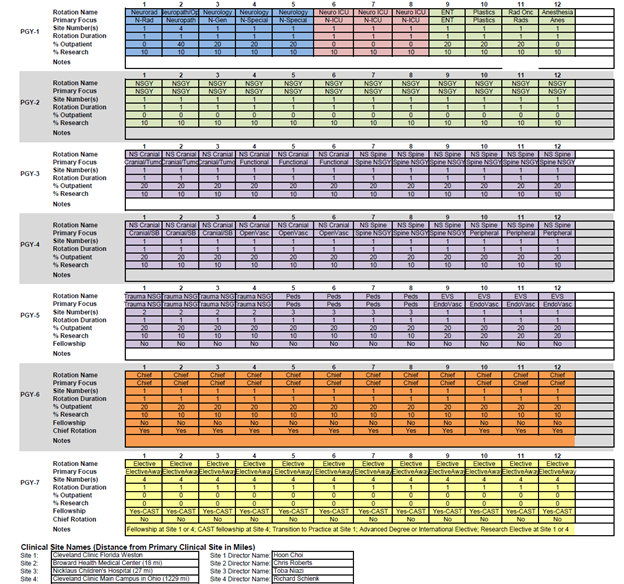
Weekly conferences and meetings
All residents and faculty attend the Weekly Neurosurgical Conference on Tuesdays. There are daily noon Neuroscience Lectures. In addition, there are weekly joint subspecialty conferences with Ohio. There are surgical workshops and journal clubs.
Benefits
Partial coverage for health and dental insurance are provided. Disability insurance is also included. Scrubs and white coats are provided free of charge. A book fund allowance is provided by the department to all neurosurgery residents. Surgical Loupes are also provided (one time purchase) for each resident during his/her PGY-1 year. Residents are able to attend one conference if presenting each year funded by Graduate Medical Education (up to $1500.00). The Neurological Institute will fund any conference in which the resident presents clinical or basic research with advanced program approval.
Benefits information including salaries, insurance information and more, can be found by visiting the Graduate Medical Education Benefits page.
Living in South Florida
Learn more about the city of Weston and the southeast Florida area.

